Are Americans Getting Sick Of The 2012 Election Already?
There are still three months or so go. The race is incredibly tight. And, voters are starting to really dislike both candidates.
The topline number from the new NBC News/Wall Street Journal poll has President Obama leading Mitt Romney by six point 49% to 43%, but the real message that’s coming out of this poll is that the negative campaigning has taken a toll on both of the candidates:
After weeks of furious attacks on the campaign trail, as well as millions of dollars in hard-hitting television ads, the increasingly negative tone of the election has taken a toll on President Barack Obama and Republican Mitt Romney, according to the new NBC News/Wall Street Journal poll.
Both presidential candidates have seen their “very negative” ratings increase to all-time highs in the poll. And Romney’s overall favorable/unfavorable score remains a net negative – a trait no other modern presumptive GOP presidential nominee (whether Bob Dole, George W. Bush or John McCain) has shared.
What’s more, pluralities say that what they’ve seen, heard and read about the two candidates in recent weeks has given them less favorable impressions of each man.
Indeed, the percentages signaling a less favorable impression about these candidates – especially at this point in the race – are greater than what the NBC/WSJ poll showed in the 2004 and 2008 presidential contests.
“This is not characteristic … for July,” says Republican pollster Bill McInturff, who conducted this survey with Democratic pollster Peter D. Hart. “These are numbers you usually see in October.”
“It does speak to the growing polarization of the campaign,” McInturff adds.
(….)
But what did change was an increase in negative views about both Obama and Romney. The president’s favorable/unfavorable score in the poll is 49 percent to 43 percent, a slight change from June when it was 47 percent to 38 percent.
Moreover, 33 percent view Obama very positively, while 32 percent view him very negatively – which is his highest “very negative” number in poll.
By comparison, Romney’s overall favorable/unfavorable score is 35 percent to 40 percent, with 24 percent viewing him “very” negatively – also his highest mark here.
In fact, Romney would be the first GOP presumptive presidential nominee since 1996 to head into his nominating convention with a net-negative favorable/unfavorable score.
In 1996, Bob Dole’s score was 39 percent to 36 percent; in 2000, George W. Bush’s was 52 percent to 32 percent; and in 2008, John McCain’s was 42 percent to 30 percent.
Also in the poll, 43 percent say that what they have seen, heard or read about Romney gives them a less favorable impression of the candidate, versus 28 percent who have a more favorable opinion.
For Obama on this same question, 44 percent have a less favorable impression about him, while 27 percent have a more favorable opinion.
It is remarkable that we’re seeing numbers like this for both candidates this early in the race. Bill McIntruff ascribes it to the polarization of the campaign, and that certainly is playing a role here because I can’t really remember a Presidential campaign that was this polarized this early on in the race, that usually doesn’t happen until the closing weeks of the campaign. However, I don’t think you can ascribe this phenomenon simply to political polarization, the fact that we have been subjected to two solid months of negative campaign by both sides is also obviously contributing to the negative feelings that voters are having toward both of the candidates. The interesting is that we’ve got another four months or so of this to go through and we’re going to see a lot more negative ads, not just from campaigns but also from the SuperPACs, the national party’s, and various third-party group. At the end of all of that, the voters will have been subjected to almost five months of negative ads. One wonders exactly how that’s going to impact their voting decisions, and the way they feel about whoever ends up winning. My guess is that we are going to be just as polarized the day after the election as we are now, and that’s going to make the job of whoever wins the election just as difficult as President Obama’s three and half years in office have been. Being constantly bombarded by negativity is not going to cause voters who are already sharply divided over the issues of the day to feel any better if the guy they oppose ends up winning. They’re going to want to fight harder, and we’re going to have more of the same.
The other notable thing about the poll, of course, is the stability of the numbers despite all the negative campaigning:
What remains remarkable about this presidential contest, according to the NBC/WSJ pollsters, is how stable it has been, despite everything that has occurred in the past month.
For example: The U.S. Supreme Court decision upholding Obama’s health care overhaul; the June jobs report, which showed that just 80,000 jobs were created last month; and the daily campaign attacks and counterattacks (including snipes over Obama’s business views, Romney’s unreleased tax returns, and the Republican’s time at Bain Capital).
“So much has happened, and so little has changed,” says Hart, the Democratic pollster.
Nate Silver makes the same observation:
We’ve now been running our presidential forecast model for almost two months, but very little has changed in our analysis of the race. Each day, we have shown Barack Obama as a modest favorite to win re-election. At no point has projected margin of victory in the popular vote been smaller than 1.7 percentage points, or larger than 2.7 percentage points; it was 2.3 percentage points as of Tuesday evening’s forecast.
You find the same thing when you look at the national polls. While this NBC/WSJ polls gives Obama a six point lead (and it’s worth pointing out in that regard that the poll appears to have been overly weighted with self-identified Democrats), both of the tracking polls, from Gallup and Rasmussen, show Mitt Romney with a slight lead within the margin of error. Additionally, the most recent Fox News poll give Obama only a four point, within the margin of error lead, and last week’s CBS/New York Times poll showed the two candidates effectively tied and the economy weighing down on the President’s approval numbers. All of which leaves the RealClearPolitics poll average at Obama +1.6 and a chart that looks like this:
What we’ve got here, then, is an election where some 90-95% of the people who will vote on Election Day have already made up their minds, and the candidates are fighting on an incredibly small piece of ground over a remarkably small group of voters. It’s always the case, of course, that Presidential elections involve both parties securing their respective bases and then turning to attract the undecided/independent voters. However, this time around, it seems fairly clear that the pie they’re fighting over is much smaller than it has been in quite a long period of time, and those voters don’t seem to be in a rush to make up their minds. Dave Helling of McClatchy Newspapers looks at this data and comes to the conclusion that the election is basically over because most people have made up their mind already and seem unlikely to change their minds between now and November 6th. However, as Jazz Shaw correctly points out, there is that small sliver of undecided voters that both parties are still trying to appeal to, and that’s why we’re seeing this early barrage of negative ads. The problem both campaigns face though, as this new poll shows, is that five months of negative campaigning is as likely to annoy the heck out of people and cause them to put a pox on both houses as it is to convince them to vote for either candidate.
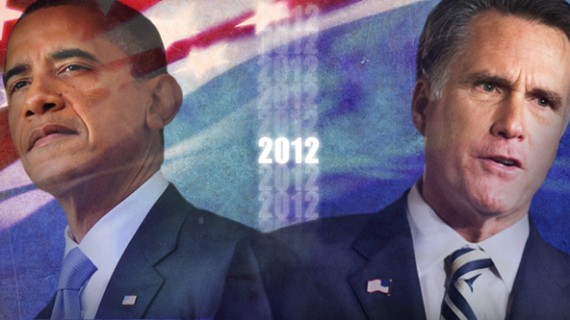
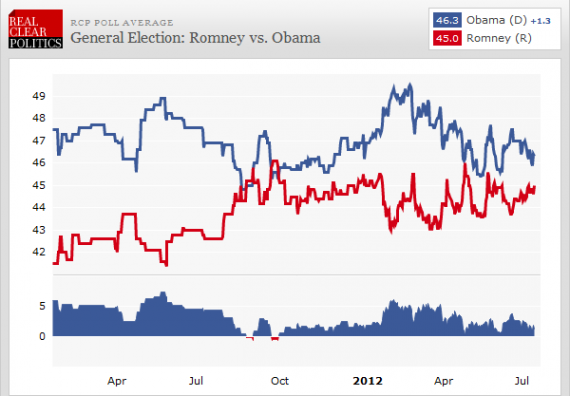



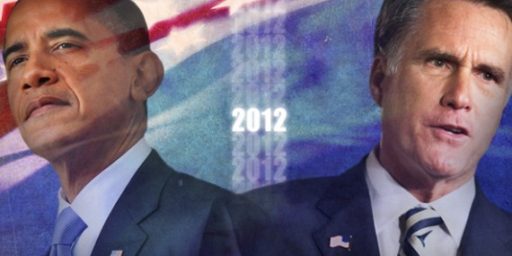
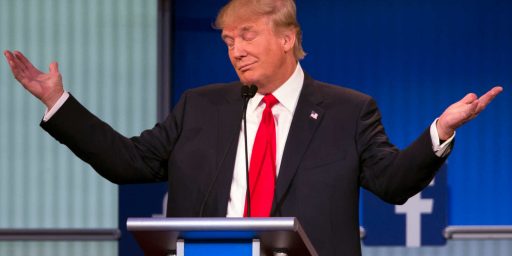
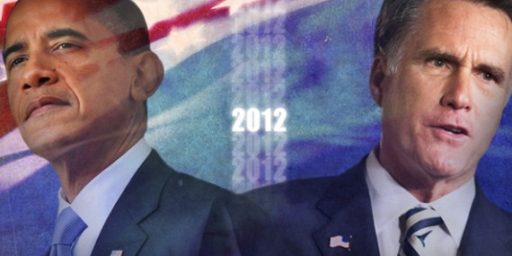
Yes.
And I don’t even have TV or listen to commercial radio.
Since the third week of January, 2009, Doug.
Why did you start so late?
Yes I am and have felt so for at least six months already.
I’m with John. I’ve been tired of it for seven months.
As to the negative campaigning/advertising, all I can say is that it’s working as intended. The purpose of negative advertising is to raise your opponent’s negatives. Negative campaigning does not increase a candidate’s positives. It decreases them, if anything. My guess is that a few more months of this will be more than any of us can stand.
I think that may be the real danger of Citizens United – the carpet bombing of negative ads with just sour the populace on the process even more than before.
Yup, very tired of it. The campaigns are way, way too long.
No, but we are sick of Obama the marxist idiot!!!!!
Oh Tom, if you need a TV, I got an extra…
@G.A.: GA…. I have a TV. As hard as it may be to believe, I actually choose not to hook it up.
@Dave Schuler: Dave: That’s 43 months for me, not 7. The high pitched whining noise–from left, right, and all the others to make up 7.1 sound–started up the day after the Inauguration.
@OzarkHillbilly: I can’t see why that would be hard to believe at all. What’s the point of watching 800 channels worth of what’s on TV in the US?
This NBC/WSJ puff piece has the unmistakable stench of agenda journalism.
I turned off to the election somewhere during the Republican primaries and the long parade of not-Romneys. Given that I’m living in a swing state, I’m thinking I’ll stay away from the television until it’s over. In some ways, it seems like the election has been ongoing since a few days after Obama’s inauguration.
The people know that there is little difference in the candidates. These candidates were selected and forced on the people. The real questions have not and will not be addressed by the news media. The actions of the UN, WTO, and World Bank that control our government. The Federal Reserve and its control of our money. The control of our economy by world organizations instead of our own people. The recent Supreme Court “decision” is proof of their control. These are issues that you will not hear in the campaign. The debates have already been scripted and planned; you will not hear real issues being discussed.